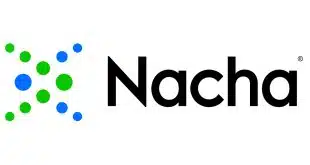Just as some merchant-acquiring industry lobbyists predicted earlier this year, a revenue-generating proposal that would force acquirers to report their clients' card-based sales to the Internal Revenue Service is making headway in Congress. The proposal is part of the Senate's foreclosure-relief bill that could be up for a vote as early as today. In the House of Representatives it is part of a bill to reform the alternative minimum tax that also could see floor action before week's end. The merchant-reporting proposal has a host of critics ranging from privacy advocates to small businesses and merchant processors worried about the costs of implementing it and penalties for mistakes. “The bill functionally serves to deputize merchant acquirers and cast them in an undesirable 'quasi-governmental' role of assisting the IRS with its enforcement obligations,” attorney Chris Baugher, a partner in the Atlanta office of McKenna Long & Aldridge LLP, tells Digital Transactions News by e-mail. Baugher is co-chairman of his firm's Payment Practices Group that serves payments-industry clients. But the measure's backers say it would generate $9.8 billion in revenues, and that's why it has legs as Congress tries to offset new spending with new revenues. “It's an attempt to close the tax gap,” says Bill Rys, tax counsel for the Washington, D.C.-based National Federation of Independent Businesses, a 350,000-member trade group. The Bush Administration quietly proposed the reporting idea two years ago in its budget plans. So-called qualified payment facilitators would be required to disclose information about their merchant clients' annual receipts to the IRS for tax purposes (Digital Transactions News, April 17). Acquirers apparently would report up network-specific annual charge volume from each merchant to the appropriate card network, which in turn would pass the data on to the IRS. The administration's thought was to identify taxable but unreported or under-reported sales. At first, proponents predicted the measure would raise $225 million over nine years, a figure that later ballooned to $10.8 billion. Now it's scaled back somewhat to $9.8 billion. Some critics have said those estimates are more grounded in political rather than financial realities. “There's really no direct evidence credit card receipts are being underreported,” says Rys. Several months ago the reporting proposal was part of a farm-subsidy proposal. But lawmakers found other ways to offset that bill's costs, so the measure was attached to the alternative minimum tax relief effort in the House, according to Rys. In the Senate, Christopher Dodd, D-Conn., chairman of the Senate Banking Committee, dropped it into the high-profile foreclosure-relief bill as an amendment. “To the extent Congress is trying to find revenue for those proposals, this is still very much in play,” says Rys. Businesses worry that acquirers could impose new record-keeping and reporting requirements on them should the proposal become law. They also fret that they will have to give their taxpayer identification numbers to their acquirers, according to Rys. “If [acquirers] don't have the taxpayer ID, there's a 28% withholding provision,” he says. “This is new information these companies are collecting. The potential for error, the potential for mistakes, is a concern.” The Senate's foreclosure measure passed a preliminary vote by a wide margin on Tuesday and could be up for floor action by week's end, perhaps even Wednesday, according to Rys. Similarly, the House bill, H.R. 6275, has clearance from the powerful Ways and Means Committee and could get a floor vote soon. The road to passage isn't entirely clear yet, however. In the Senate, one pending amendment would kill Dodd's amendment, while another would delay its implementation, Rys says. And if the proposal does pass, lawmakers in each chamber would still need to reconcile the House and Senate versions and settle on which spending measure it would offset. The House Small Business Committee held a hearing about the proposal June 12. Afterward, panel chairwoman Nydia M. Velázquez, D-N.Y., issued a press release opposing the measure, saying it would impose costly burdens on small businesses.
Check Also
Affirm Expands Its Credit Reporting to TransUnion
Buy now, pay later platform Affirm Holdings Inc. early Tuesday announced it will begin credit …





